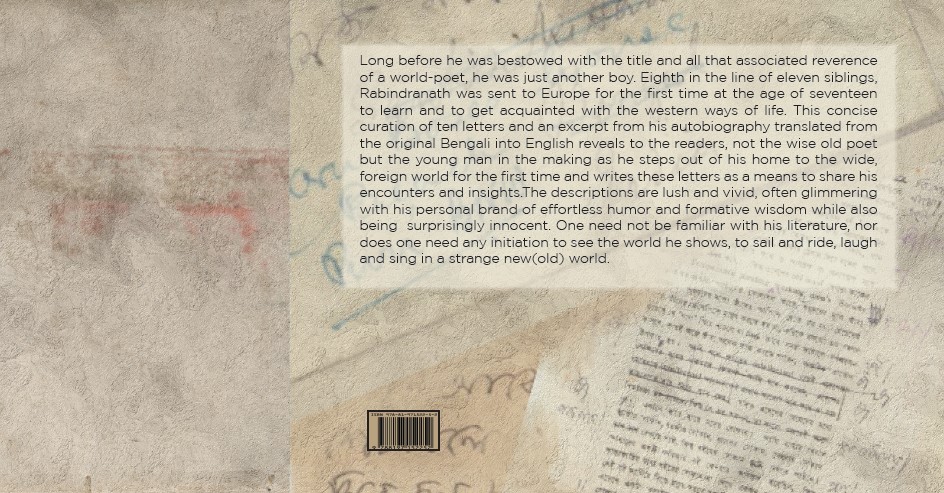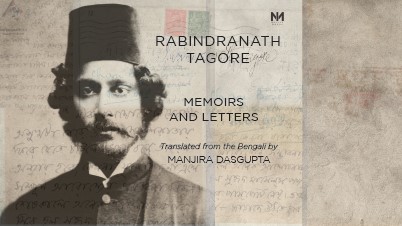TRANSLATED FROM THE BENGALI BY MANJIRA DASGUPTA
An Episode in Bilaat
All the while during my stay in England, I got entangled in a “farce of the first order.” I had got acquainted with the widow of a high official who had been posted in India, and the lady used to affectionately call me “Ruby.” An Indian friend of hers had composed an elegy in English upon the death of her husband. The less said about the literary and poetic merits of the composition, the better.
To my utter misfortune, the elegy came with the instruction that it should be sung in Bihag raga. One day, the lady cajoled me into singing her the song and I obliged, out of courtesy. Luckily, none except me was present there who could appreciate the utter ridiculousness of that strange verse put to tune in Bihag . The lady was pleased, and I, relieved to have arrived at the end of the episode. Alas, I had been too optimistic.
I used to meet the widow quite often at parties. After dinner, when all the guests—gentlemen and ladies—would assemble in the drawing room, she would request me to present that composition. The others, expecting that they would be getting to hear an exotic example of Indian Classical music, would join the lady’s earnest enjoining. Thereupon, the inevitable printed page would emerge out of the lady’s pocket—and my ears would start reddening. I would start my song bashfully, with a bowed head—only too aware that it was me alone, and no one else, for whom the consequences of this requiem were to be utterly tragic. The song would be greeted with suppressed laughter and an excessively polite, “Thank you very much. How interesting,” upon which, I would start sweating even in the cold winter. Who could have imagined that the demise of the honorable gentleman would prove to be such a misfortune for me?
After this, there was a long gap before I met her again. She would often request me to visit her house on the outskirts of London. I used to decline with all my might, dreading the requiem. At last, one day her telegram came when my return to Kolkata was imminent. So, I thought I should keep the lady’s request before my departure from England.
On that fateful evening, I went to the station straight from College. The day was wintry and chilly. I knew that my destination was the last station on this line—and so, I sat, without worry, reading my book—oblivious of when I would have to get down.
One by one, passengers from London left the train at their respective destinations. By then, it had become pitch dark—without a light or a soul in sight. The train kept moving toward my destination station but then started moving in the reverse. I surmised this to be some whimsical ways of trains and resumed my reading without paying much attention.
But it became difficult for me to stay nonchalant when I discovered that the train had come to a halt at the very station we had left behind. In a panic, I asked people when my station would come, only to be told that it was the station that we had just left. Thoroughly alarmed by now, I asked where the train was going. They replied, “London.” I got off the train, flustered beyond measure, and learned further that there was no other train that night, nor was there an inn within five miles.
I had breakfasted at ten in the morning, and since then, I had not had even a drop of water. But when you have no other path open to you other than the ascetic one, renunciation becomes your last resort. And so, there I sat, beneath the lamppost, reading the newly released Data of Ethics by Herbert Spencer. I consoled myself by assuring myself that I had been accorded a rare and splendid opportunity to read the book with undivided concentration.
Sometime later, the porter came and announced that a special train would be arriving within half an hour. My elation at the good tidings made it nearly impossible for me to concentrate on Data of Ethics any longer.
When I reached my hostess’ place at half past nine instead of the scheduled seven o’clock, she said, “Why, what is the matter, Ruby?” I narrated my amazing travelogue not too proudly.
The guests had just finished their dinner. I had a faint hope that as my crime had not been committed intentionally I would be spared harsh punishment—especially as the arbiter was a lady. But that high official’s widow told me, “Come, Ruby, have a cup of tea.”
I never take tea, but hoping that a cuppa could calm the stomach pangs, I drank that strong bitter tea with a few biscuits. Coming to the living room, I discovered several aged ladies—and a beautiful American lady who was betrothed to my hostess’s nephew.
Our hostess said, “Come! Let us dance.” Now, as for myself, I had no desire whatsoever to dance, and indeed, neither was in a state to, but then, those who are the meekest of men perform miracles in this world. Therefore, even though this dance gathering had been arranged principally for the engaged young couple, I ended up dancing with a number of aged ladies without having eaten anything since the morning apart from a few biscuits.
But more surprises were in store for me when my hostess asked me, “Ruby, where are you planning to spend the night?” As I stared at her, bewildered, she kindly informed me, “All the inns here close at two in the night, so I think you should not delay.” It would be unfair to blame her for total discourtesy—a servant did accompany me to the inn with a lantern in hand.
It seemed like a blessing in disguise, after all—probably they would provide some sort of meal at the inn—be it vegetarian or non-vegetarian, fresh or stale. After they said, “Sorry, you can have as much to drink as you like, but no food,” I consoled myself by thinking that the goddess of sleep would provide me some respite—if not with nourishment, then at least with blessed oblivion. Alas, even she spurned me that fateful night . . . the sandstone-floored room was relentlessly chilly, and all it consisted of were an old cot and a decrepit washstand.
Next morning, the Anglo-Indian lady called me over for breakfast. It was what the British call a “cold meal.” This means that the previous night’s feast was served in the morning to be eaten cold. Had I been offered even a morsel of this meal last evening, hot or even lukewarm, perhaps no one would have been harmed, nor would my dance performance have resembled the pathetic spasms of a fish pulled out of water.
After the repast, my hostess said, “The person for whom you have to sing the requiem is sick and bedridden. You have to stand outside her room and sing.” I was made to stand on the staircase. The lady pointed at the closed door and said, “She is in that room.” I stood facing the unknown and unseen and sang the dirge in Bihag raga. I was not able to learn from hearsay or from the newspapers about the effect that my song had on the patient.
After my return to London, I had to atone for my exaggerated meekness by being bedridden for two or three days. Dr. Scott’s daughters said, “For God’s sake, Robi, please do not take this horrendous invitation as an example of our country’s hospitality. This is entirely the credit of the Indian climate of yours!”
To read the episodes of the series on Memoirs & Letters: Tagore in Translation, visit the following pages of The Antonym:
Follow The Antonym’s Facebook page and Instagram account for more content and exciting updates.




























0 Comments